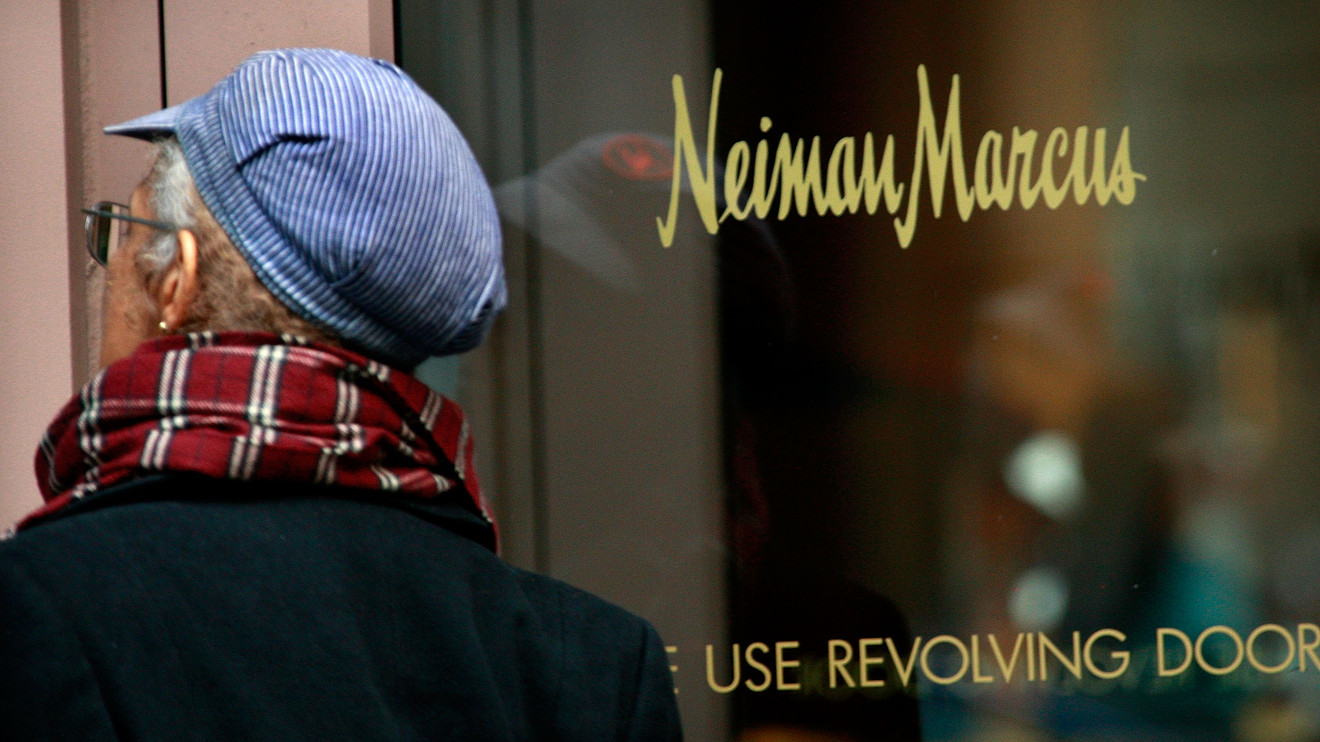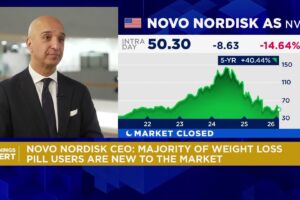
Many retailers have shuttered their stores amid the COVID-19 outbreak. UBS analysts think a lot of stores will remain shuttered for good over the coming years.
Analysts forecast 100,000 stores will close by fiscal 2025, with apparel retailers the hardest hit at 24,000 closures.
Most categories will be impacted, with consumer electronics expected to see 12,000 closures, and home furnishings and grocery retailers at 11,000 closures each.
The most insulated names are the ones that have fared best during the coronavirus pandemic, including Walmart Inc. WMT, -1.71% , Target Corp. TGT, -3.91% and Costco Wholesale Corp. COST, -1.83% .
Home Depot Inc. HD, -1.60% and Lowe’s Cos. LOW, -2.04% , dollar stores like Dollar General Inc. DG, -1.70% , and off-price retailers like Ross Stores Inc. ROST, -5.68% and TJ Maxx parent TJX Cos. TJX, -3.90% are also well-positioned, UBS said.
Overall, e-commerce will be the biggest beneficiary, with penetration forecast to reach 25% by calendar year 2025 versus 15% currently. Experts say the convenience of e-commerce as well as a desire to continue with contactless transactions into the future is driving accelerated adoption of digital shopping.
With e-commerce expected to thrive, UBS says Amazon.com Inc. AMZN, +0.78% and its 193-million-plus square feet of fulfillment space are poised to benefit.
Wayfair Inc. W, +12.04% has also added considerable fulfillment space, increasing to 15.5 million square feet in 2019 from about 795,000 square feet around 2015.
Moody’s analysts say the fittest will survive.
“The coronavirus pandemic has raised significant credit concerns about whether U.S. retailers have enough liquidity to survive the coming weeks and months,” analysts wrote.
Media reports say luxury department store Neiman Marcus is preparing for a bankruptcy filing this week.
“Many of the distressed retail companies are private-equity owned and are unlikely to receive a substantial amount of government cash to stem their liquidity needs,” Moody’s wrote.
Neiman Marcus was acquired by Ares Management Corp. ARES, -4.91% and the Canada Pension Plan Investment Board in 2013
In a separate note, UBS analysts say there’s been a spike in online sales even among those categories that are forecast to lag. For instance, online shoe sales were up 35% to 40% over the past week, though margins will be pressured as retailers offer incentives for shoppers not to abandon their carts.
And:April will be ‘hideous’ for retail as stores remain shuttered and shoppers stay home, analysts says
Analysts are also seeing a shift toward athletic gear and away from the cozy “stay-at-home” items most have been wearing to get through the lockdown. This shift sets up Nike Inc. NKE, -2.23% and Skechers USA Inc. SKX, -5.33% for gains.
Stifel analysts are anticipating the post-coronavirus fashion trends will continue to favor the more casual and minimal.
“Work-from-home mandates introduced many to the practice, and the behavioral shift will stick for some, enhancing the importance of comfort and reducing demand for more formal clothing,” analysts wrote in a note published last week. “Halted business travel also reduces the use cases for more formal business attire.”
The Keds brand is already promoting its work-from-home style on its homepage.
“I think in the immediate aftermath of the virus there’s going to be a strong focus on washability and items that feel both protective and comfortable,” said Holly Curtis, Keds global vice president of product. “We’ve all gotten very used to our coziest items, and while there will be a temptation to get dressed up to go ‘out’ I think feeling comfortable and security will prevail.”
Don’t miss:Fight the ‘quarantine 15’ with free workouts from Peloton, Nike and others to help you stay healthy
And K-Swiss, the tennis-shoe maker, forecasts a brief bump in spending once shoppers have someplace to wear their new outfits.
“I think young people will want to be at their best when they re-enter the world and their social groups, so I expect a spike in fashion spending,” said Barney Waters, president of K-Swiss.
“However, that euphoria will be short-lived, and in tough times, people go back to what they know, the trusted brands and products that are tried and tested. A buy less/buy better mentality.”
The Consumer Discretionary Select Sector SPDR ETF XLY, -1.74% has fallen 7% over the past year, the Amplify Online Retail ETF IBUY, +0.67% has gained 2% and the SPDR S&P Retail ETF XRT, -1.13% has slumped 25%. The S&P 500 index SPX, -1.78% has slipped 2.8% for the past 12 months.









